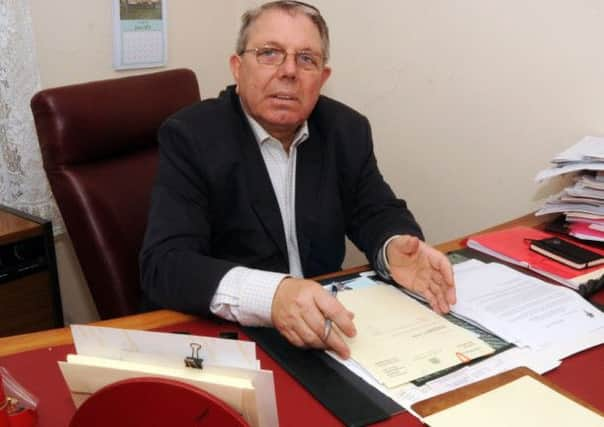GUEST COLUMN: Cash is still king, by Sir Alan Meale MP


I say this because as we approach the forthcoming Autumn Statement, the interim approach to annual economic strategy, we find that nothing has changed with cash yet again being king and the Bank of England reporting that despite a growing proportion of payments being made directly, the actual demand for its currency is steadily increasing annually by around five per cent.
What’s causing this? Is it simply fear of computer theft? Maybe, but more likely that most people trust cash more, it being mostly reliable and difficult to counterfeit with a myriad of complex systems built into its production, including colour changing inks, text so small you need a microscope to read and materials used, with products printed not upon paper but instead mixtures of cotton fibres and other substances like the recently introduced plastic £5 note.
Advertisement
Hide AdAdvertisement
Hide AdIndeed, until recently the US dollar bill itself was made from a mixture of Irish linen and the waste from the denim industry. So, why is it that this ancient product continues to out-strip both invention and inflation, or is such information relevant? Former USA President Bill Clinton once gave the answer by commenting: “It’s the economy stupid”. The fact is that rising inflation can put any country and its people to the sword, slashing values, making imports/exports unaffordable, slowing down household growth, lowering real incomes and causing living standards to fall.
Conversely growth can occur unexpectedly and economic trends change overnight to the benefit of us all. The trick is to get it right.
Before the recent referendum people were warned that there would be massive tax rises if a decision was made to leave. Campaign talk or should we get ready for changes?
Today with a new Prime Minister and Chancellor, both of whom subscribed to these warnings, talk of an emergency budget now seems to have faded away, this because contrary to comments made by both sides, the UK tax system isn’t controlled by Brussels as changed rates of basic taxes depend largely on the domestic economy.
Advertisement
Hide AdAdvertisement
Hide AdEurope does, however, influence other forms of Government tax raising, particularly indirectly from VAT, a mechanism largely developed to ensure EU partners traded with each other.
However, now the decision to leave has been taken, it seems both sides of the vote want to maintain trade terms within the European Economic Area. It remains to be seen if any major tax changes will therefore follow. My guess is probably not, a ‘wait and see’ strategy being adopted until well after the third quarter of the year before any fundamental decisions are made next spring. As for now it’s the pound in your pocket that counts. Let’s hope and pray that as we approach the festive season and maybe another winter of discontent it keeps its value.